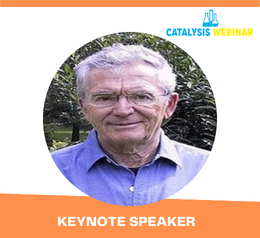Scholars International Webinar on
Catalysis, Chemical Engineering & Technology
THEME: "Contemporary Advances and Innovations in Catalysis and Chemical Engineering Research"
 25-26 Nov 2021
25-26 Nov 2021  Online | Virtual
Online | Virtual THEME: "Contemporary Advances and Innovations in Catalysis and Chemical Engineering Research"
 25-26 Nov 2021
25-26 Nov 2021  Online | Virtual
Online | Virtual 
University of California, USA
Title: Hydrogen manufacture without CO2
Dr. Metiu obtained his Ph.D. at MIT in 1974. After postdoctoral research at MIT and the University of Chicago, he joined the UCSB faculty in 1976. His awards include an Alfred P. Sloan Fellowship (1978), a Camille and Henry Dreyfus Teacher-Scholar Award (1979), the Exxon Solid State Chemistry ACS award (1979), the UCSB Faculty Research Lectureship (1987), a Humboldt Senior Scientist Award (2003), and the American Chemical Society Division of Physical Chemistry Award in Theoretical Chemistry (2015). He was an Associate Editor of the Journal of Chemical Physics from 1999 through 2012.
Most hydrogen is currently produced by steam
reforming of methane or other hydrocarbon feedstock. The manufacture of roughly 50 million tons of
H2 produces 300 million tons of CO2 as a side
product. Catalytic methane pyrolysis, CH4
= C + 2H2 is a possible alternative.
Performing this reaction without a catalyst requires unreasonably high
temperature. The use of traditional
catalysts is not possible because of coking.
To avoid coking we began a systematic search for molten catalysts. The reaction is performed in a bubble column
in which methane is injected in the molten catalyst. The reaction takes place in the bubbles and
the carbon form is carried with the bubble and it floats on top of the melt
from which it can be removed. In this
implementation the catalyst in the liquid carbon remains clean and there is no
coking. We have studied both molten
metal alloy catalysts and molten salts.
I will present results for the best-performing catalysts we have found. We have also studied dry methane reforming
catalyzed by molten metals. Pyrolysis
and dry reforming occur concurrently and this allows the production of syngas
of any desired ratio of hydrogen to CO.
As in the case of pyrolysis there is no coking.